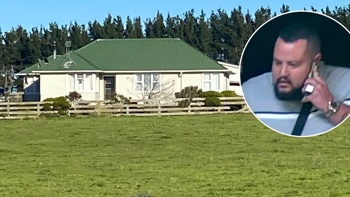
A feisty band of feline devotees will meet Auckland Council on Monday in a last-ditch effort to keep domestic cats exempt from the city's harsh new pest management strategy.
The council meeting with the SPCA and several other cat right activist groups is one of the final consultations before an expanded Auckland Regional Pest Management Strategy (RPMS) is put into operation in March 2019.
The activists are particularly distraught at the proposal, first laid out in November 2017, that cats rounded up in regional Auckland sites of "ecological significance" can be "euthanised" if found without a microchip.
NZ Cat Foundation president Anne Batley-Burton says the new strategy is a risk to all domestic pet cats, and there are ulterior motives.
We can't suddenly go slaughtering the world's most-loved companion animal purely because it doesn't have a microchip.
"We're not talking about rounding up cats in urban areas, this is about managing cats in a small number of high ecological value sites where we've got a particular threatened shorebird breeding population - that sort of thing.
"Microchipping was a way we determined which cats were responsibly owned at those sites."
Despite this assurance, SPCA CEO Andrea Midgen says the mapping of the "ecologically sensitive" areas across Auckland is far too broad.
"The challenge we have at the moment with the RPMS is they've basically highlighted most of Auckland which is not going to work," Midgen said.
"There's obviously a whole lot of cats in suburbia Auckland not doing a serious amount of damage because they're well fed and we don't have a lot of native birds."
Midgen also said the RPMS operational implementation date of March 2019 was too hasty.
"They have to put some long-term plan in to start microchipping the cats, and in a period of 10 years, once all the cats have been identified, they can start eradicating, because they will know they're not owned," Midgen said.
"We're a nation of cat lovers and we've allowed them to roam free, unlike Australia, where they're used to containing cats in their properties because of predators.
"That's not our culture so we need to give people time to learn to manage that."
But Dr Bassett said threatened native Auckland species could not wait a decade.
"That's a really long time for some of our native species; we don't necessarily have that long."
The reliability of some microchips on the market has also been questioned by animal advocates; the Virbac brand microchip has repeatedly been found faulty.
Auckland Council accepted this, but said all pet owners should consult with vets on reliable brands.
Dr Bassett said there had been no time-frame proposed about how long after a stray cat was rounded up in a sensitive area it could be euthanised.
The meeting at Auckland Council on September 17 will be chaired by councillors Penny Hulse and Cathy Casey along with council biosecurity staff. Public submissions on the new pest management strategy closed on March 28.
Auckland Council was keen to stress the strategy encompasses more than 400 pests, not just cats.
Dr Bassett said cats have contributed to the local or complete extinction of nine species of native New Zealand birds.
Take your Radio, Podcasts and Music with you









